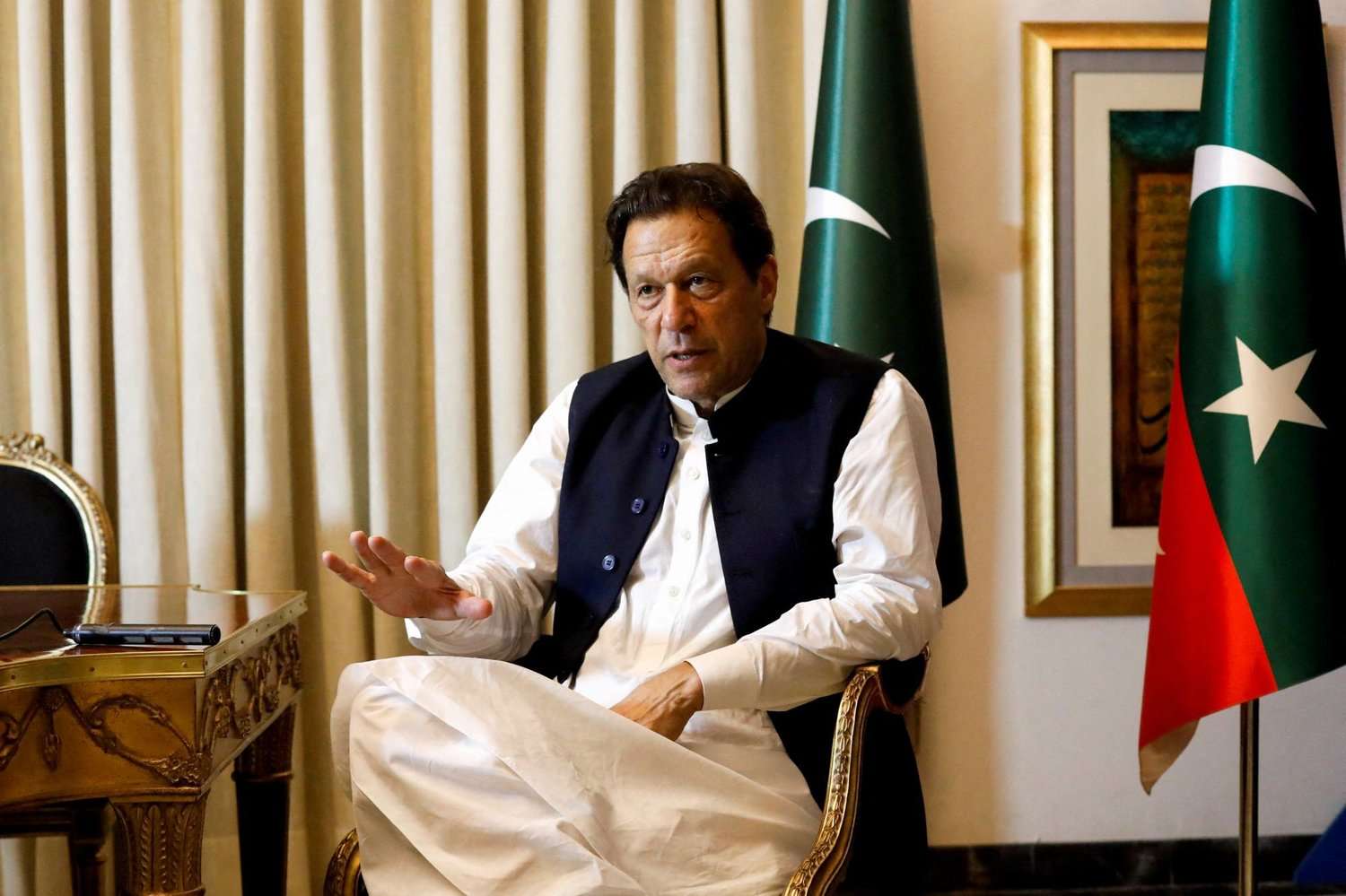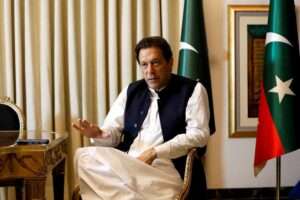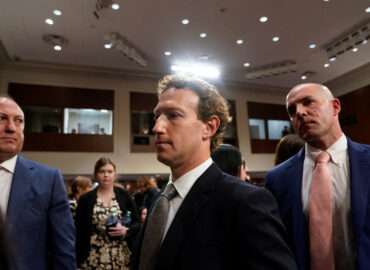Image Courtesy – Mint
The conclusion of Pakistan’s parliamentary elections brought about an unexpected turn of events, introducing a potential for a tumultuous transition to the next government and leaving victorious politicians with uncertain governing authority.
Despite the anticipation of a decisive victory for the Pakistan Muslim League-Nawaz (PML-N), supported by the influential military establishment, the electorate surprised by favoring politicians aligned with the Pakistan Tehreek-e-Insaf (PTI) party led by the incarcerated former Prime Minister Imran Khan. This outcome, however, does not guarantee Khan’s ascendancy to the prime ministerial role or assure his party’s leadership in the upcoming government.
The PTI faced obstacles as it was essentially barred from fielding candidates due to a Supreme Court ruling prohibiting the use of their electoral symbol on ballots. Consequently, many PTI-affiliated politicians ran as independents, securing a significant 92 seats in Pakistan’s parliament—more than any other major party. While this would typically position a party favorably for government formation and prime ministerial selection, the independents, lacking party affiliation, have led to discussions between the PML-N and the Pakistan People’s Party (PPP) to form a coalition for the next government.
Should PTI manage to establish the upcoming government, Imran Khan would still be ineligible for the position of prime minister, as his criminal convictions impose a 10-year ban on holding elected office.
The formation of a coalition government in Pakistan’s Parliament appears inevitable, with a probable alliance between PML-N and PPP. In such a scenario, Shehbaz Sharif, the brother of PML-N chief Nawaz Sharif, is anticipated to assume the role of prime minister.
What are key events in the run-up to the elections?
The former Prime Minister of Pakistan, Imran Khan, faced a corruption verdict, resulting in a 14-year sentence – marking his second conviction in consecutive days. This latest blow comes just ahead of his political movement’s bid to regain power in upcoming parliamentary elections.
The conviction, the most severe of the two, is viewed within the context of the enduring struggle between civilian leaders and the influential military in the troubled Western ally.
Imran Khan and his wife, Bushra Bibi, were charged with unlawfully retaining and selling state gifts, violating government regulations during Khan’s tenure. Alongside the 14-year imprisonment, Khan also received a 10-year disqualification from holding any public office.
In the final days of his premiership, Khan, who had begun to confront the country’s military, was removed from power through a no-confidence vote in April 2022. Currently, he faces over 150 legal cases.
Following Khan’s arrest last year, Pakistan witnessed violent protests, some of which targeted military installations.
Since then, authorities have taken stringent measures against Khan’s supporters and his political party, the Pakistan Tehreek-e-Insaf (PTI). This has made the possibility of further rallies unlikely, and numerous PTI candidates have been barred from participating in the parliamentary elections scheduled for Feb. 8.
Pakistan has a historical pattern of detaining former prime ministers or marginalizing them before elections if they are perceived as a challenge to the influential security establishment. This establishment has exerted considerable influence over civilian politics, with more than two-thirds of the country’s civilian rulers facing arrest, conviction, or disqualification since gaining independence from Britain in 1947.
Formidable Imran
For years, Imran Khan, one of Pakistan’s most recognizable figures globally, struggled to translate his widespread popularity into electoral success. In 1996, he founded the Pakistan Tehreek-e-Insaf (PTI), aiming to bring about justice. However, it wasn’t until the 2011 general election that both the PTI and Khan emerged as serious political contenders.
Positioning himself as a “change” candidate, Khan’s promise to usher in a new era of clean politics resonated with voters disenchanted by the existing political landscape. Seven years later, a significant shift catapulted him to power, with the PTI making substantial gains in Punjab, the stronghold of rivals Nawaz and Shehbaz Sharif.
Khan envisioned building a “new Pakistan” marked by wealth redistribution and pledged transformative measures, including tax system and bureaucracy reforms. However, his tenure was marred by skyrocketing inflation, a plummeting rupee, and crippling national debt, prompting a $6 billion rescue bailout from the International Monetary Fund.
Despite his aspirations for a full, five-year term, defections eroded Khan’s parliamentary majority by late March 2022. The opposition capitalized on this, leading to a vote of no confidence on April 10, resulting in Khan’s loss. He attributed his downfall to an alleged foreign conspiracy without evidence, subsequently facing charges under Pakistan’s official secrets act.
Jailed for 10 years just a week before the 2024 election, Khan’s critics argue that his main challenge lies in losing support from the military, a dominant force in Pakistan’s history. Accused of sidelining opponents and facing accusations of corruption during his tenure, Khan found himself isolated politically.
In a significant incident in 2022, he was shot and wounded during a protest rally, claiming it was an assassination attempt by senior officials. The military denied any involvement.
In a video statement, Omar Ayub Khan, the chief organizer of PTI, claimed that independent candidates supported by the party might potentially secure a two-thirds majority for the upcoming federal government. However, the Election Commission of Pakistan attributed the delayed announcement of results to “internet problems,” sparking speculations and raising concerns regarding potential irregularities in the electoral process.
There is speculation that the prospective government could explore legal avenues to overturn Imran Khan’s jail sentences and the prohibition on holding public office. Additionally, there may be efforts to contest the ECP’s decision on Imran Khan’s eligibility for future elections.
The specter of electoral rigging has cast doubt on the integrity of the election process, exacerbated by the suspension of the country’s mobile phone network on voting day, ostensibly for security reasons. This has further fueled concerns about potential manipulation. PTI’s secretary for information, Roof Hassan, has expressed suspicions of result tampering based on reports from party agents in the field.
The forthcoming weeks are poised to be tense as Pakistan’s Parliament endeavors to shape a government, with PTI supporters expressing their allegiance and vocalizing their discontent with the political and military hierarchy.
This signifies a disapproval of the hybrid nature characterizing Pakistani politics, wherein democratic mechanisms like elections and a judiciary coexist with a certain degree of influence from the military. A history of military coups has plagued Pakistan’s democratic structure, and despite competitive elections and active political parties, the military holds ultimate power—a dynamic experienced by both Khan and Sharif, whose rifts with the military establishment have impacted their political trajectories (though Sharif appeared to mend ties with the military leading up to the election).
Traditionally, both the Pakistani populace and the international community have largely accepted this as the prevailing order. However, Khan’s supporters view him as an outsider combating corruption—a figure detached from the political establishment who comprehends their concerns. This is why their endorsement of PTI-affiliated politicians signals a departure from the norm in politics.






